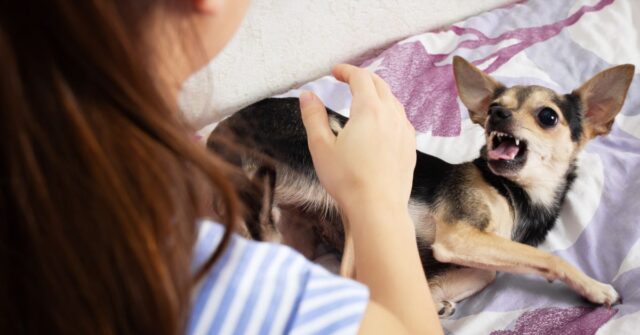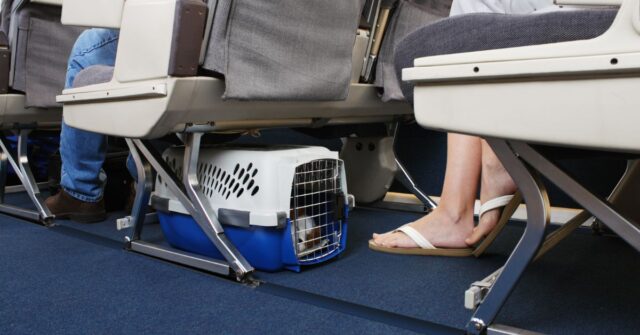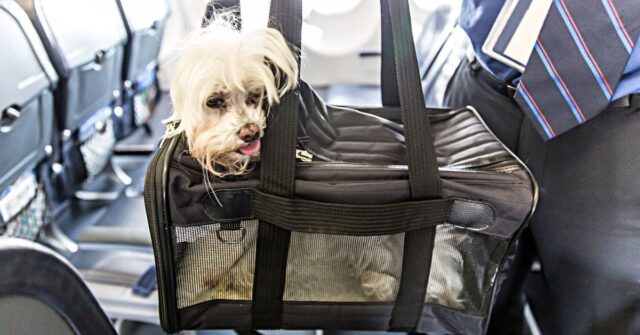Welcome to this comprehensive guide on dog breeding regulations tailored for Australian dog owners.
Whether you’re considering becoming a breeder or are just curious about the subject, this guide aims to cover every aspect you need to know about the legal and ethical aspects of dog breeding.
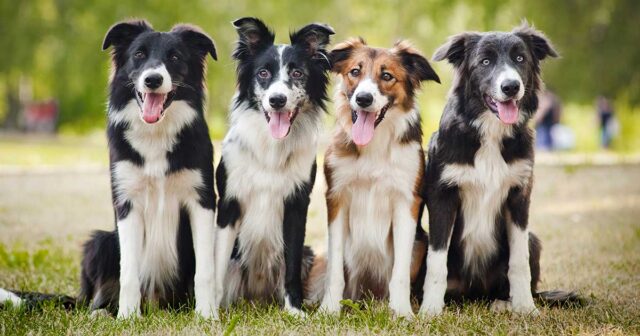
Introduction
Understanding the regulations surrounding dog breeding is crucial for ensuring the well-being of the dogs involved and fulfilling your legal obligations as a breeder.
In this guide, we delve into the specifics of what these regulations entail and why they are essential.
Why Dog Breeding Regulations Matter
Regulations are in place to protect the welfare of the animals involved, ensuring that they are bred in a responsible and ethical manner.
Non-compliance not only puts the animals at risk but can also result in hefty penalties or legal repercussions for the breeder.
Target Audience: Australian Dog Owners
This guide is aimed primarily at Australian dog owners interested in breeding, but it could also be of interest to veterinarians, potential dog buyers, and animal welfare advocates.
The Importance of Responsible Dog Breeding
Being a responsible breeder is about more than just adhering to laws and regulations. It also involves ethical considerations and the welfare of the dogs and puppies involved.
The Ethics of Dog Breeding
Responsible breeders are committed to producing dogs that are not only physically healthy but also well-socialized.
This involves careful planning, extensive knowledge, and a long-term commitment to the welfare of the dogs.
Impact on Dog Health
Poor breeding practices can result in puppies with hereditary diseases and poor temperament.
Responsible breeding helps ensure that puppies are healthy, reducing the likelihood of costly and emotionally taxing health issues later on.
Contribution to Pet Overpopulation
Unregulated breeding can contribute to pet overpopulation, resulting in more dogs ending up in shelters. Following proper breeding guidelines helps combat this issue.
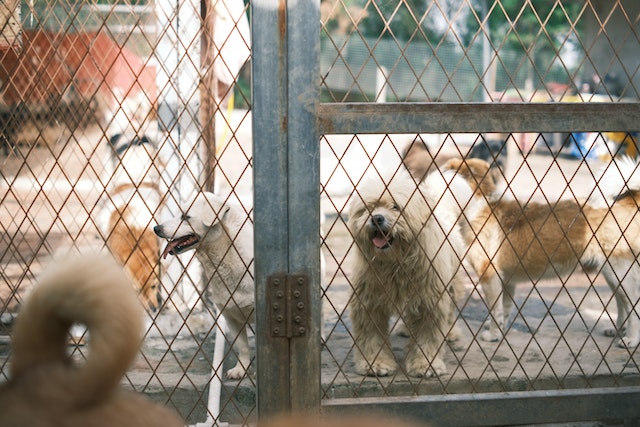

Australian Dog Breeding Laws: An Overview
In Australia, the laws surrounding dog breeding can vary from federal to state and even down to local council levels. Here is a quick overview.
Federal Laws
At the federal level, the focus is generally on preventing animal cruelty and promoting animal welfare, rather than specific breeding regulations.
However, federal laws serve as a foundational guideline for state and local laws.
State Laws
Each state in Australia has its own set of laws relating to animal welfare and breeding.
These laws can cover aspects such as breeding licenses, age restrictions for breeding dogs, and how many litters a dog can have.
Local Council Regulations
Local councils may impose additional rules and guidelines, such as mandatory microchipping or specific care standards. Always check the regulations in your specific locality.
Key Regulations to Know
It’s crucial to familiarize yourself with key regulations to avoid any legal complications and to ensure you’re breeding dogs responsibly.
Breeding License Requirements
In many states, you’ll need a license to breed dogs. This often involves an inspection of your facilities and an assessment of your breeding practices. Failure to acquire a license can result in hefty fines.
Age and Health Checks for Breeding Dogs
Before breeding any dog, you need to ensure they are of an appropriate age and health condition which includes being free of any illness or disease.
Generally, dogs should be at least 18 months old and have a clean bill of health from a veterinarian.
Microchipping and Registration
Microchipping and registering both the parent dogs and the puppies is usually mandatory. The exact requirements can vary by state and local council.
Litter Limitations
Some states limit the number of litters a female dog can have in her lifetime or within a given time frame. Always check local regulations for specific limitations.
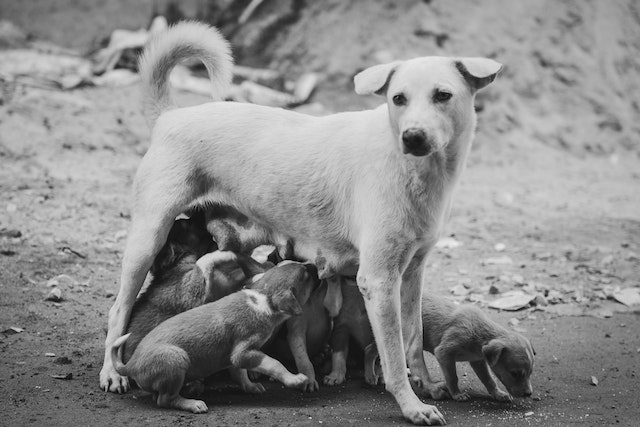

The Breeding Process
Breeding dogs is a complex process that requires a deep understanding of canine biology, genetics, and healthcare. Here’s a brief overview.
Mating
Choosing suitable mates is crucial for successful breeding. This involves understanding the genetics and health of both parent dogs to minimize the risk of hereditary conditions.
Pregnancy and Whelping
Proper prenatal care is crucial for the health of both the mother and the puppies. Whelping (giving birth) also requires preparation and, often, veterinary assistance.
Puppy Care
Newborn puppies require extensive care, including feeding, warming, and regular health checks. Proper socialization from a young age is also crucial for their development.
Record-Keeping: Why and How
Keeping accurate records is not only a good practice but often a legal requirement. Let’s delve into what this entails.
Required Documentation
You’ll need to maintain records of each dog’s lineage, health checks, vaccinations, and microchipping details. These records may need to be presented during inspections or when selling a puppy.
Best Practices for Record-Keeping
It’s wise to keep both digital and physical copies of all records. Make use of software designed for breeders, and always keep backup copies of important documents.
Healthcare Requirements
Healthcare is a significant aspect of dog breeding, and regulations often dictate certain healthcare standards that breeders must meet.
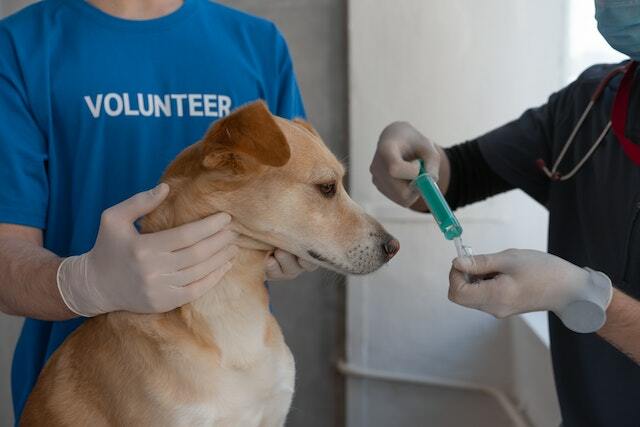

Vaccinations
Vaccinations are usually mandatory for all dogs involved in the breeding process. This includes vaccinations against common canine diseases such as parvovirus and distemper.
Deworming
Regular deworming of both adult dogs and puppies is essential to prevent parasitic infections and is often a requirement under breeding regulations.
Vet Checks and Certifications
Regular vet checks are crucial for monitoring the health of the breeding dogs and puppies. Certifications from veterinarians are often required when selling a puppy.
Financial Aspects of Dog Breeding
Dog breeding can be an expensive endeavour. Understanding the financial aspects can help you budget effectively.
Cost Estimates
Costs can include vet bills, quality dog food, facilities, and time. Always prepare a detailed budget to understand the financial commitment involved.
Insurance for Breeders
Insurance can help protect against unexpected healthcare costs or legal issues. Research and select a policy that suits your needs.
Taxation
As a dog breeder, you are running a business and are subject to taxation. Keep accurate financial records and consult a tax advisor familiar with animal breeding businesses.


Frequently Asked Questions (FAQ)
We’ve compiled a list of common questions aspiring dog breeders often have.
How Do I Obtain a Breeding License?
Obtaining a breeding license usually involves submitting an application to your state’s governing body, undergoing an inspection, and paying a fee.
How Do I Report Irresponsible Breeding?
If you suspect irresponsible or illegal breeding practices, you can report it to local animal welfare organizations or the local council.
What Are the Penalties for Breaching Regulations?
Penalties can range from fines to legal action and the confiscation of the animals involved. In severe cases, one may be banned from breeding animals altogether.
Conclusion
We hope this comprehensive guide has provided you with the information you need to become a responsible and successful dog breeder in Australia.
Why Complying with Regulations is a Win-Win
Compliance ensures the well-being of your dogs and helps you avoid legal complications. It’s a win-win situation for everyone involved, including the dogs.
Final Considerations for Aspiring Dog Breeders
Before you embark on your breeding journey, make sure you’ve understood and complied with all local, state, and federal regulations, and that you’re financially and ethically prepared for the commitment.








